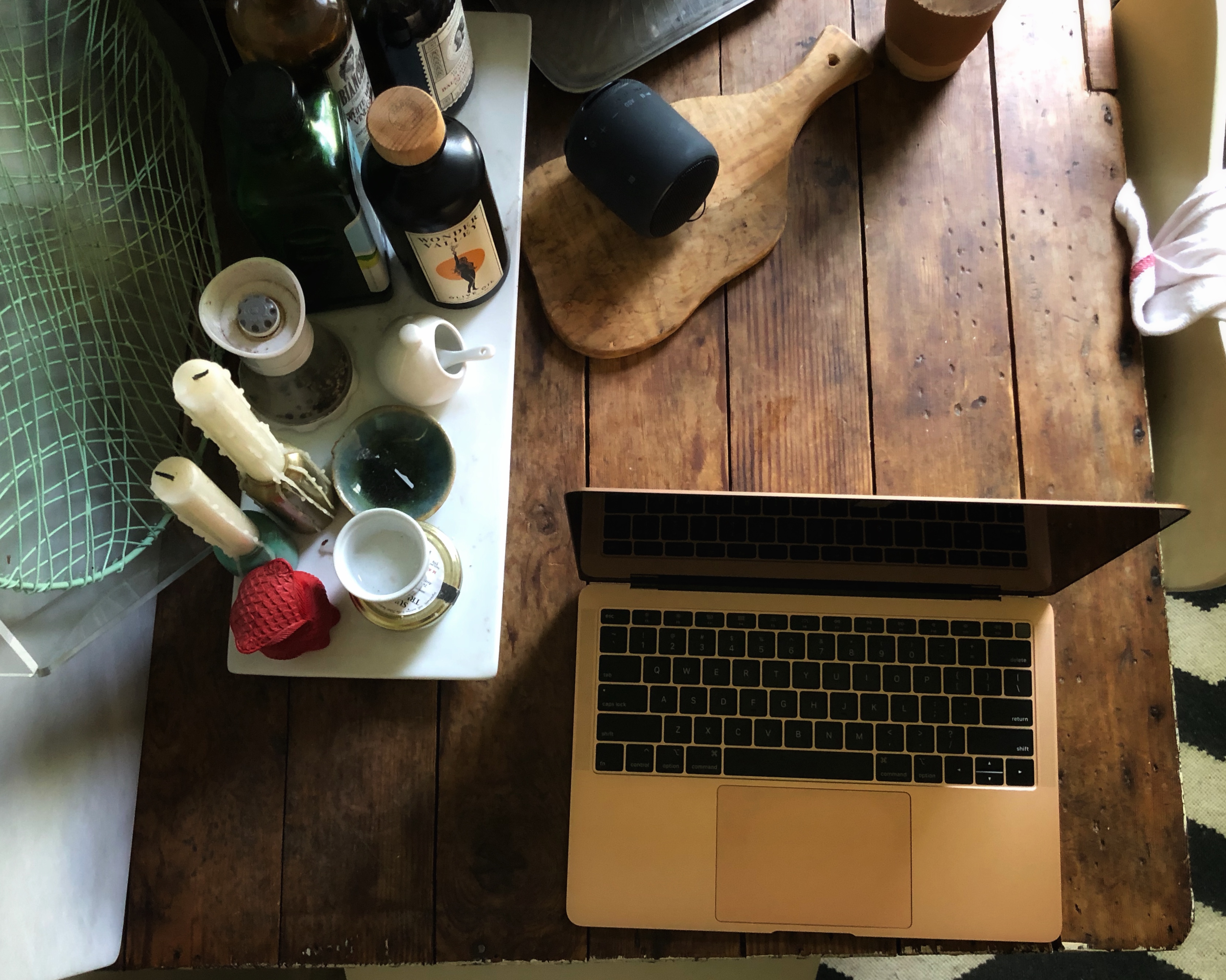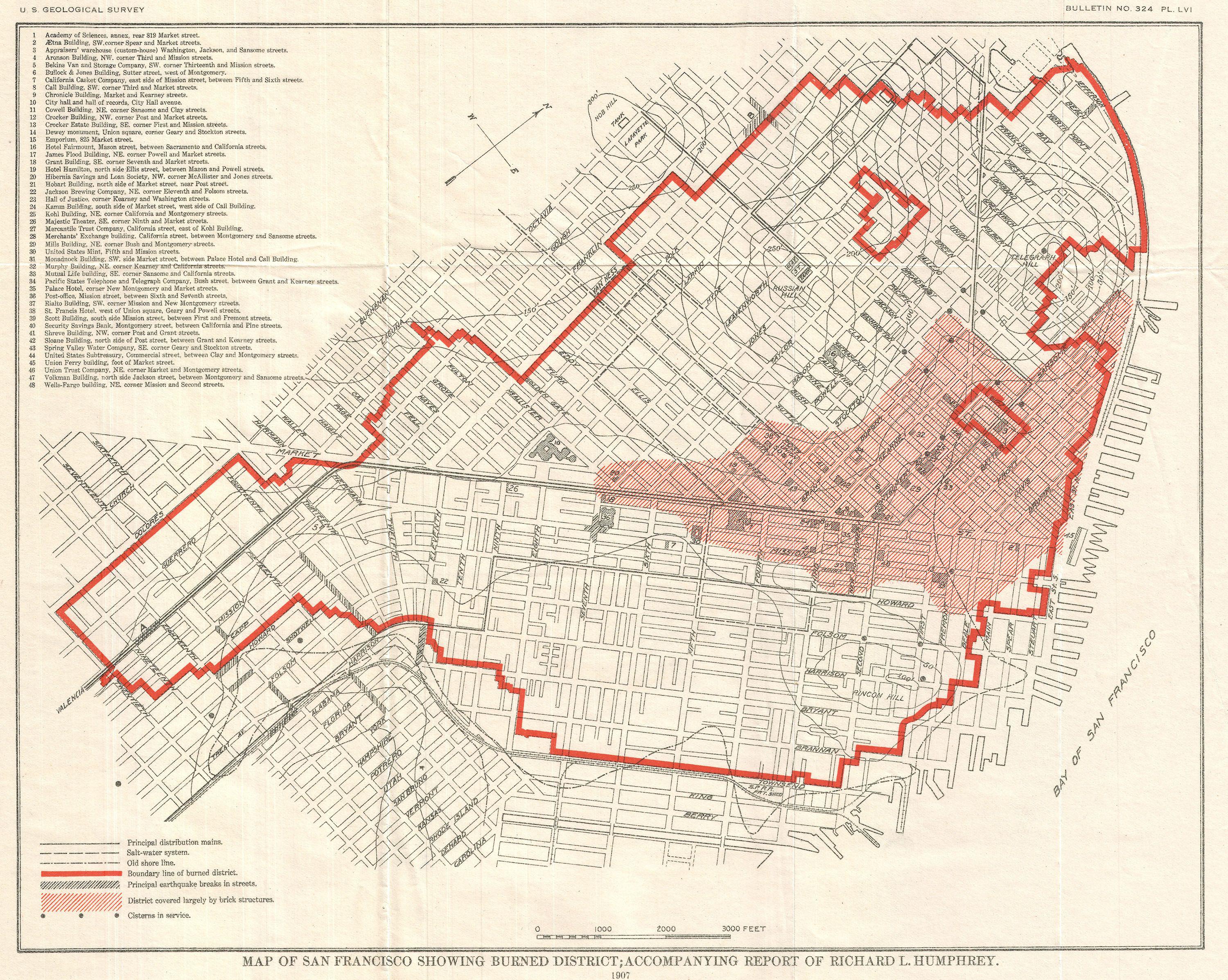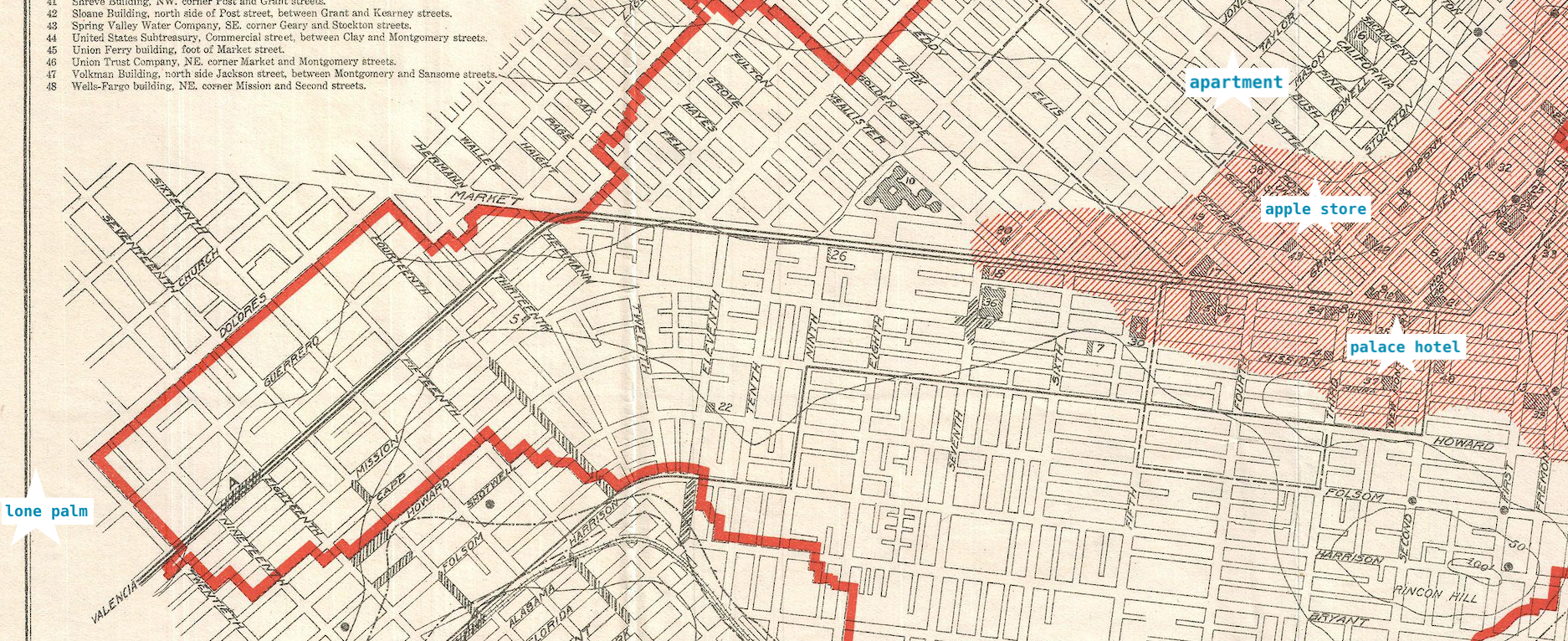Surface desires

2019.05.24 // DESK // BROOKLYN //

Full summer has hit here, at least for a few days, and I’m in my kitchen this Saturday morning, hitting “send” after roasting some golden cherry tomatoes.
Friday night, I was not at my desk. There was an emergency rally in Washington Square Park, after a wave of deadly violence against Black trans women and the current administration’s aggressive rollback of legal protections — in health care, in shelters — for all trans people. I’m in the early stages of reporting a story on how we got here, thanks in part to the alliances some feminists have been willing to make. But I was there last night for more reasons than that.

This is Friday Letters.
The wonderful folks behind Red Light Reader packed Bluestockings last Saturday for what was a kind of fifth year reunion for Playing the Whore. I arrived there straight from a screening of three (rare) films Samuel Delany worked on — two as “script boy” (writer) and one he directed, called The Orchid. Before, I met him for the first time, and he autographed a twentieth anniversary edition of Times Square Red, Times Square Blue for me, dating his signature, “May 18, 2020.”
Then I carried it with me to my own reading and let everyone know Samuel Delany had signed a book to me from the future. I read for the first time from the chapter called “The Peephole,” which kicks off with Delany in the 1990s, and North Beach in San Francisco in the mid-aughts, and the City Lights bookstore (an applause line in that room), and the only red light district I have ever worked in.
I never had an iPhone while I worked up there, but I did have a jailbroken Nokia smartphone, originally released in Europe and Asia, with a camera that wasn’t even so bad. I shot dressing rooms, and late night donut shops, and the F line streetcar. It is not news to me, then, that some report in 2019 that to live in San Francisco means to live within a layer of nostalgia. Were you there in 2009? 2003? If it was true then, and it was, it’s always been true.
The day the iPhone came out, I wove through the carnival barker line along Post Street that morning, and by the evening, blind drunk, put my hand on a wall of a building on the corner at Montgomery Street, pulling myself up the hill to my apartment on Sutter and Taylor, and in my bag was a book someone had just given me as a gift at the Palace Hotel bar, The Philosophy of Andy Warhol, an on-the-nose thing in an on-the-nose day I keep writing about like there is something more meaningful in it than knowing I knew that day someone would think the day was something: June 29, 2007.
One week before, Facebook launched Video. I remember that day more for the night, going for the first time to a bar on 22nd Street between Valencia and Dolores Park called the Lone Palm (there is one queen palm outside, planted in the 1990s). “Video,” whatever: they showed black and white Hollywood movies on old tv’s and had rose water in the ladies room.
These “new” technologies were — like these places and how we were in them — intimate, as I remember it. Grandiose, yes, in the manner in which they were presented, but the scale of them, using them, was more about the couple than the global, about sex and not death, glamour and not propaganda. Or that’s what it was like within those few blocks, where it was only their use that was really invented.

(Maybe I missed my chance to write my small San Francisco story, at scale. But that’s what I’m working on over the next few days, an essay for Katie West’s new anthology.)
To get oriented with me, my map, laid over a 1907 geological survey:

What’s in red was mostly built of brick one hundred years before the city’s real big day, when much of it was destroyed.

I had to fake the map out here to get the Lone Palm in, but you understand, and understand how small this place is still. Allegedly what kept the Mission — that neighborhood with the bar to the west of that part of town, “but also in the imagination” — from burning was one fire hydrant, later painted gold and memorialized with a plaque that reads in part, “May their love and devotion for this city be an inspiration for all to follow and their motto ‘The city that knows how’ a light to lead all future generations.”
You will note “lone hydrant” is not what they named the bar.

San Francisco is not entirely over. That hydrant still gets a new coat of paint each April 18th. But please don’t go fuck up my bar.

Very slow roasted cherry tomatoes. Just as you forget about them, but before they’ve fully wrinkled down, slice up your tomatoes, put them on a rimmed baking sheet with some parchment paper if you’ve got it. Turn the oven on to 240 or 250 or whatever you’ve got that is lowest. Maybe put on this week’s Desert Oracle Radio. Drizzle olive oil over the sliced tomatoes (I have a bottle of Wonder Valley from California right now, it won’t last the summer), season with some salt and pepper, and lay down a few cloves of garlic still in the skins. Give it two hours, three if you can stand it. Toss the tomatoes with bitter greens, or fold them into soft scrambled eggs, or as suggested by the writer I borrowed this from first eight years ago, just eat them off the tray immediately.
COMING UP //
Are you a documentary filmmaker in or near Columbus, Ohio? I would like to hear from you this week: <melissa@melissagira.com>
Also: should I start this blog again?
BACK MATTER //
“Family, Former Attorney of Queens Woman Who Fell to Her Death in Vice Sting Say She Was Sexually Assaulted, Pressured to Become an Informant” / The Appeal, 2017.12.15 (To read before you read this outstanding and tough new essay from Sophia Rossi, “Free Fall,” in the latest issue of The New Inquiry)
STATION IDENTIFICATION //
This is Friday Letters, by Melissa Gira Grant (me), the author of Playing the Whore: The Work of Sex Work and a journalist covering gender, sexuality, law, and power, as a senior staff reporter at The Appeal and a contributing writer for the Village Voice, Pacific Standard, and Valleywag (RIP). You may have read my feature reporting at BuzzFeed News and the Guardian, or my commentary in the Washington Post and the New York Times, or my criticism in Bookforum and the New York Review of Books. Or maybe you’ve followed some of my more far-flung projects, like Terrific City or w4m.club or What Price Love? or Coming & Crying. Or you were on LiveJournal in the summer of 2000, too.
Thank you.
x
MGG
// melissagiragrant.com
// 00084
